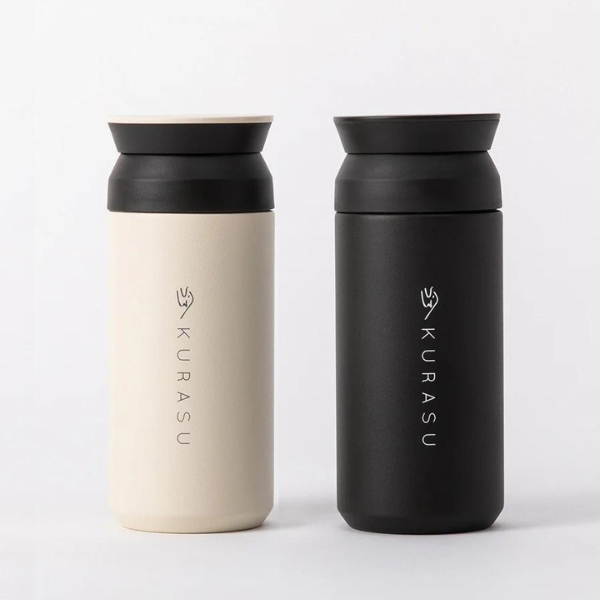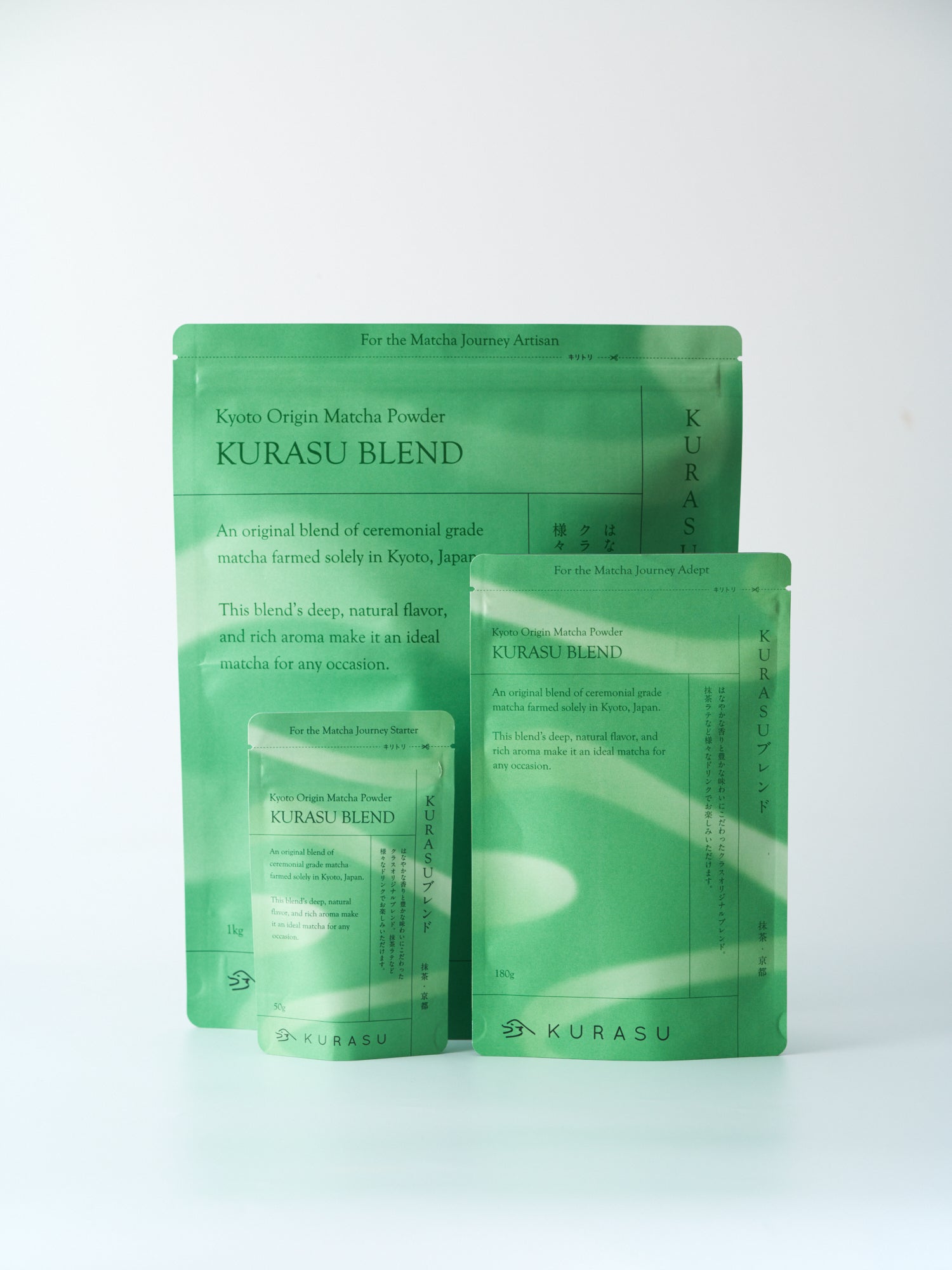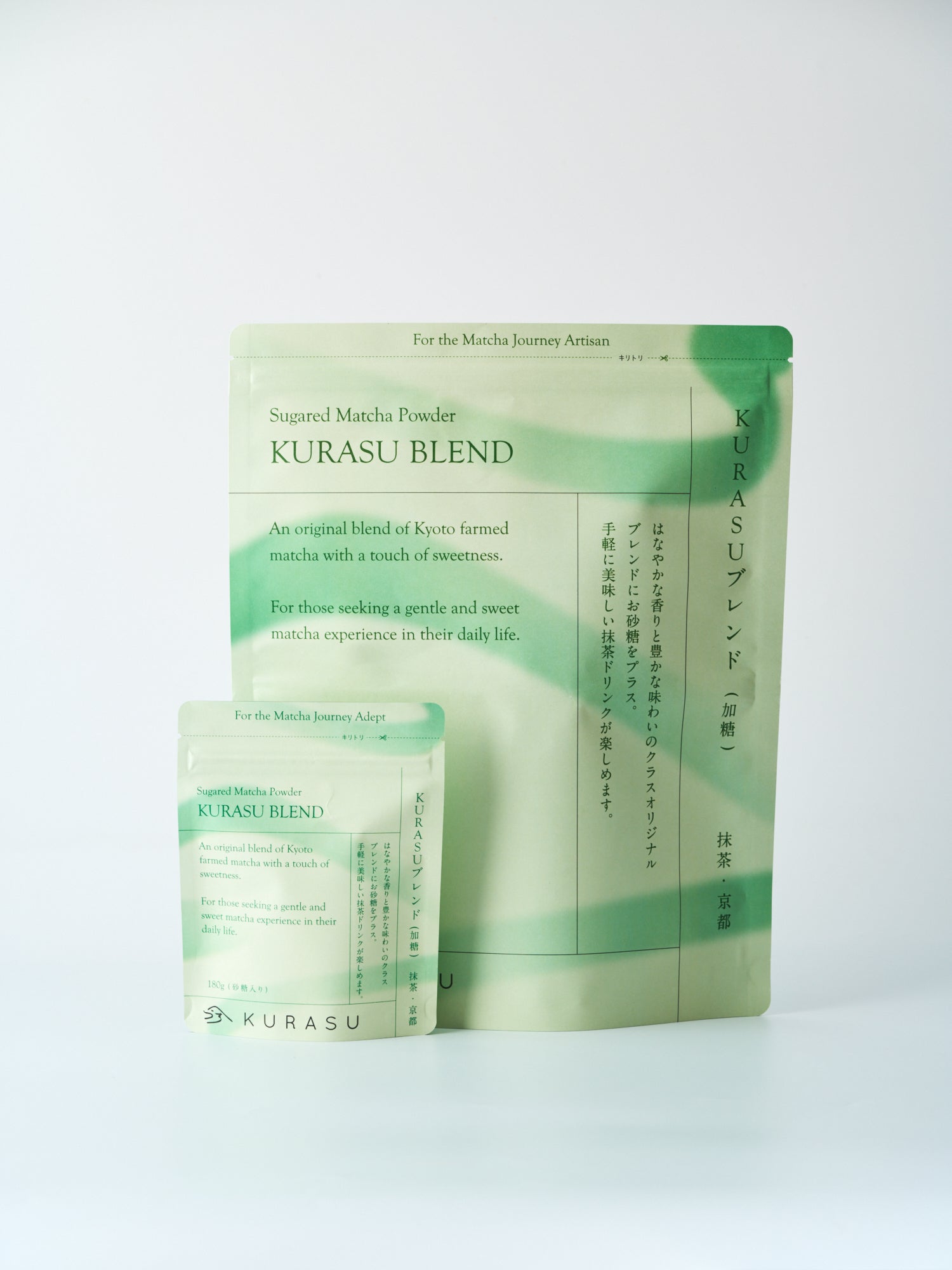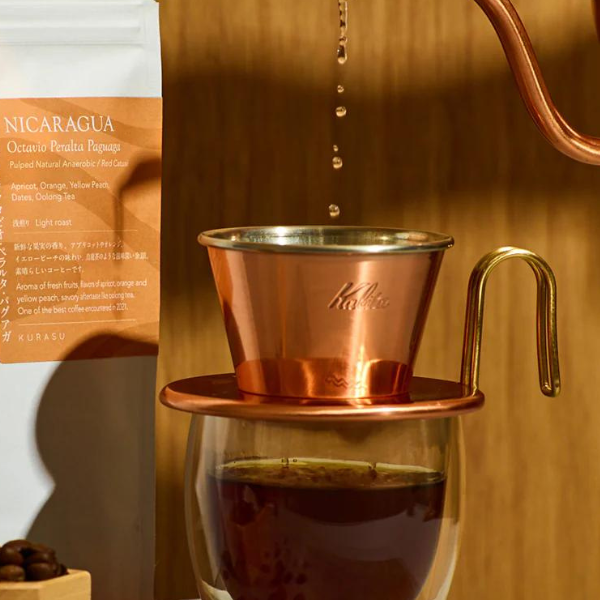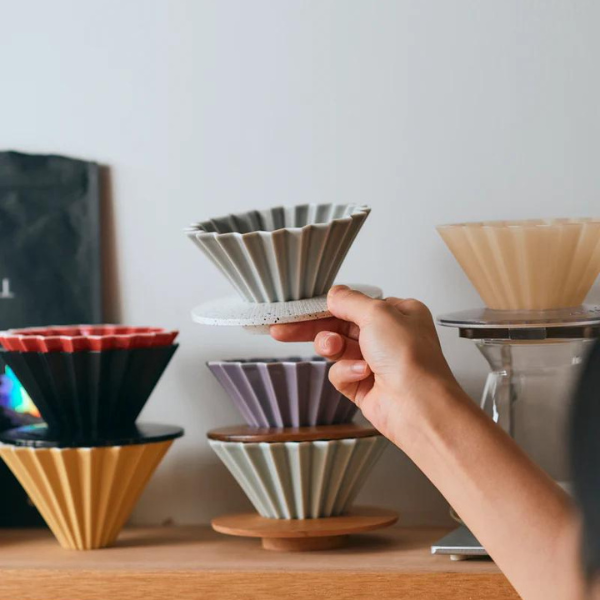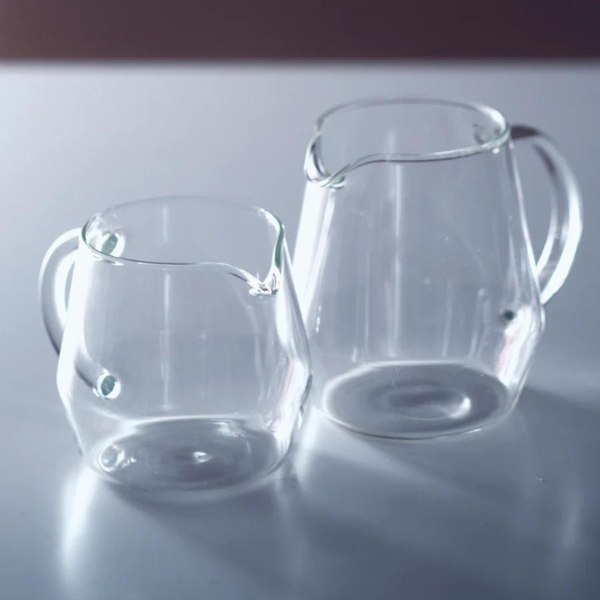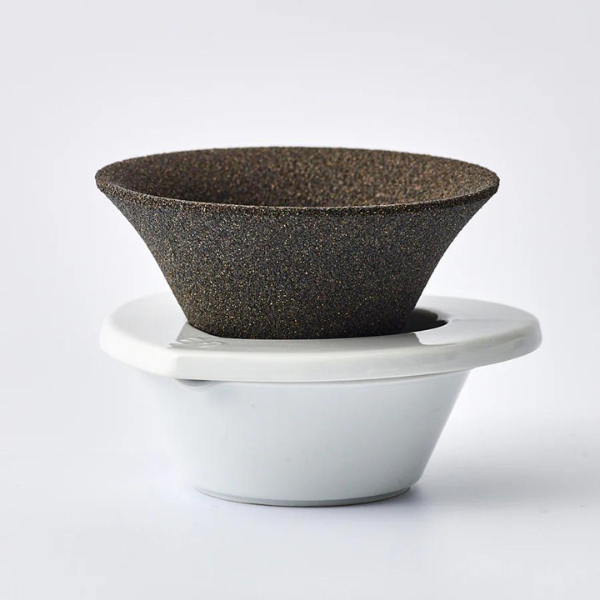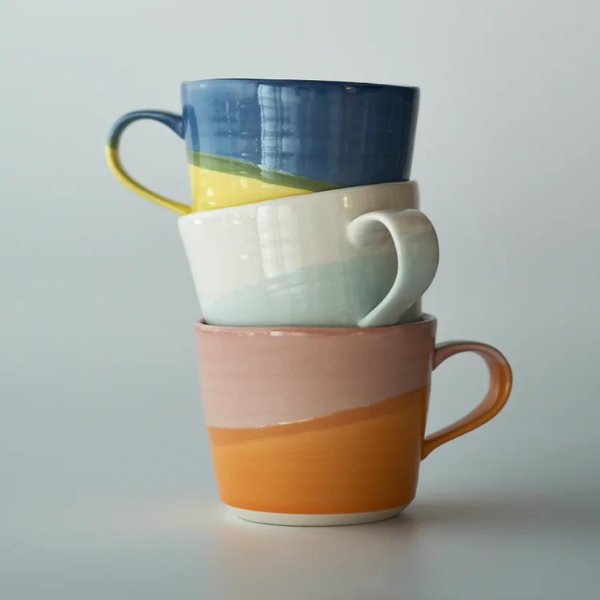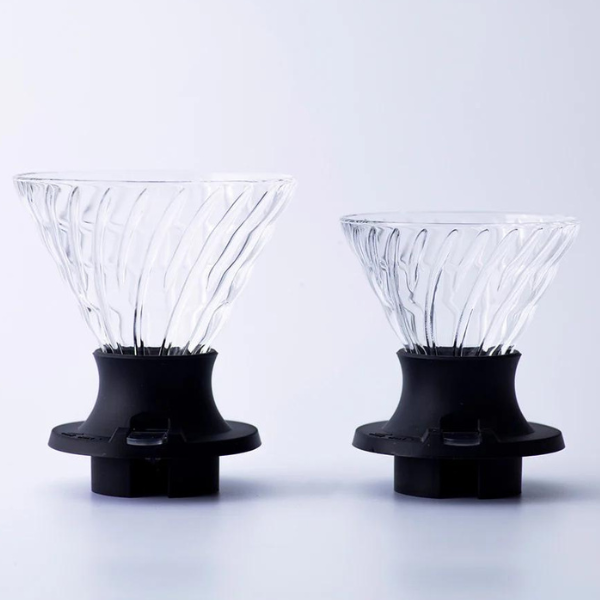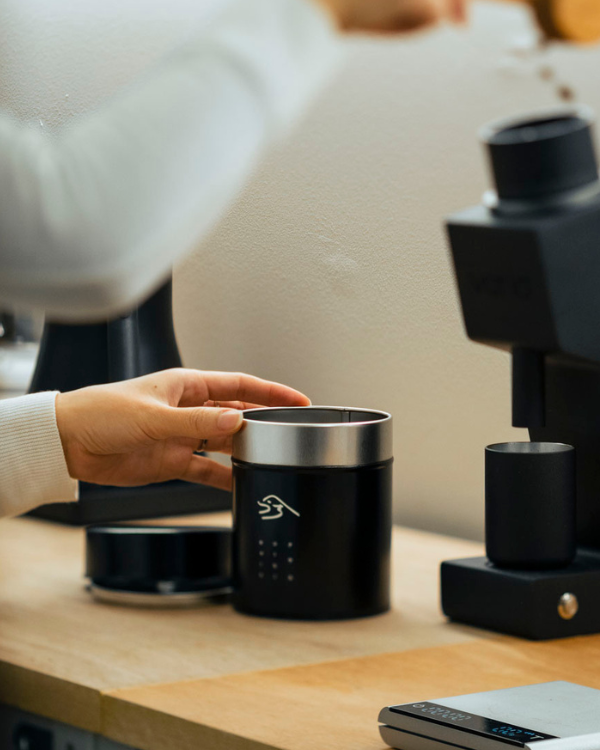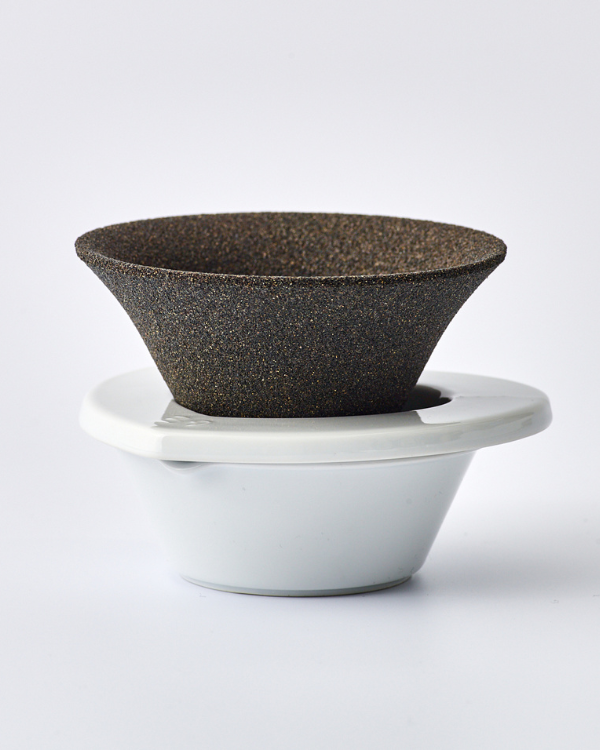We are a coffee startup based in Kyoto, running 2 shops and a roastery locally, while having 8 global locations in Singapore, Bangkok, Jakarta, and Hong Kong. Our mission is to introduce Japanese coffee scenes and culture to the world, and ultimately make a positive impact to create a more connected, sustainable future for the specialty coffee world.
Kurasu also has unique sister brands such as2050 Coffee andKigu: 2050 Coffee is a new advocate for people in Japan to be more familiar with specialty coffee on a mass scale, while drawing attention and making a difference to the looming issue of the year 2050. Kigu imports and makes many wonderful coffee equipment around the world accessible to the Japanese market.
It all started from an idea, a sense of calling, and a laptop- but not many knows how our founder, Yozo, has reached that moment in his life. And it turned out to be quite as unique as what Kurasu does.
In this three-part series, we interviewed Yozo and he shared his life story, his coffee roots and how Kurasu was born.
Growing Up With Coffee
——When and how did you start Kurasu?
It started out as an online store I made in around 2013/14. Back then I was living in Australia- and I started to sell some Japanese coffee gears online as a side gig.
It wasn’t just coffee equipment at first- all kinds of things Japanese, but then I noticed that coffee gears are especially popular. As a coffee enthusiast myself, I decided to make my shop focused on coffee too.
Then the shop grew in popularity over time,and I’ve got the feeling that it will actually be something.Since then I decided to have a brick and mortar store, opened Kurasu Kyoto stand in 2016, made it a company in 2018, and have been slowly building the system ever since.
——Kurasu already has 10 years of history.
You’re right. 10 years already. It’s gone by so fast, really.
——So you said you were already into coffee when you started Kurasu- what was your first memory of coffee?
Both my parents love coffee. I remember my mother always brewing pour-over at home.I’d say growing up watching my mother making coffee is my origin of coffee experience.
Also, both my father and mother were running a jazz kissa individually,and that must have had some influence over my life later on. Father was running a jazz kissa and a guest house at home, and mother was running a jazz kissa called NICA in Teramachi Nijo area. So I enjoy jazz because of that, and coffee was always around since I was a child- it was part of my everyday life.
——So the coffee was always there.
Yes, like a part of the furniture- always, naturally around.
Born in Kyoto, Moved to NY at 4
——Speaking of your childhood, are you from Kyoto?
Yes, I am. The house I grew up in is a little north from the palace, near Masugata shopping street in Demachi Yanagi.
——Quite a historical shopping street, isn’t it?
It’s where “Demachi Futaba” famous for their mame mochi is, a movie theatre was built later as well and it is still a very busy street. It’s often getting featured in magazines too.
——A popular area. So you were born there, and moved overseas?
I moved to New York when I was 4. I went to a nursery in Japan, and went to a preschool in New York.
——Did your parents' jobs take the family there?
My father is a painter, and he was often visiting New York to paint, going back and forth between there and Kyoto.Then he decided to move to New York to be officially based there, and mother decided to move with me too as we had an admiration for the city ourselves.

However, my parents separated soon after, and that left my mother and I to stay in New York on our own.We lived in Manhattan for the next 6 years, until I became 10 or so.

——What was it like moving to New York at such a young age?
I vividly remember the moment I landed at the airport in New York for the very first time, and when we arrived in Manhattan crossing Brooklyn Bridge. Even as a child,I clearly felt that I have come to somewhere so different from Kyoto.
But also because I was so young, I naturally blended in to New York.I attended a regular public school, and before I realized I was speaking English.
Diversity was My Childhood Norm

——So you attended a public school, not a Japanese school.
Yes,and I have nothing but great memories there.
I have classmates with many different backgrounds. My best friend was a girl from Thailand, and other good friends I remember were African American, Chinese, Scottish, Italian American, and so on.
Being different was a given, and diversity was the everyday norm.Spending my childhood in such an environment built the core of my personality and value.
——As a Japanese child, did you fit right in?
I’d say kids handle these things much better. We naturally got along.
I was too young to understand all the details, butmy mother had a hard time being an immigrant single mother. It must have been so hard, raising a small child on her own on an unfamiliar land. Although she used to be an English teacher in Japan and had a good understanding of English, she was not as fluent as a native English speaker.
America back then had racism even worse- all she wanted to do was to make a regular transaction at a bank, and got yelled at. We felt that how we looked had people looking down on us. We wanted to do normal, daily life stuff but were not allowed to. I remember trying to use a bathroom but people didn’t let me and it clearly had something to do with me being Asian.
——You had a hard time.
But at the same time.I remember so many kind people too.
What helped me learn English at the start was this cassette tape of Sesame Street music, but that was given by a total stranger on the subway one day. He handed the tape to me, saying “here you go”- not like he was trying to sell something to us or anything, he just gave it to me.
It was an alphabet song sung by the Sesame Street characters- I listened to it every night, and that helped me learn English.
——That’s a lovely story.
Also, there was one time when mother and I were getting on the subway, and somehow I got on first, and the door closed in front of my mother.
——That sounds like a very tricky situation.
The train started with me on, without her…later 80s and early 90s were a rough time in New York, and my mother must have felt terrified.
Buteveryone on the train worked together to help us. Some people tried to get the driver to stop the train, and when it didn’t work some stayed with me, getting off at the next station, telling me it’s going to be OK.
There were difficult times because of the discrimination, but we also met so many kind and generous people. Everything has both sides.
Got the Balance Just Right
——For how long were you living in New York?
I was in New York until I was 10, and moved back to Kyoto when I was a 4 grader.I attended a regular public school in Kyoto too.
——The change in the environment must have been enormous.
Completely different cultures. It is what it is, and as a child I was flexible enough to deal with it. ButI always wanted to go back to New York.
For example, the rules such aseverybody having to wear the same gymwear, swimsuit, etc did not exist where I was in America. I found having to wear a massive name tag across my chest of the gymwear very embarrassing too, haha.
——School bags are the same for everyone in Japan too.
Exactly. Inducing the school bag, having to use the same thing as everyone else was a new concept for me and it took me a while to get used to it. Also, I did not get why there was a clear division between “girls” and “boys”. Girls only hang out with girls, and vice versa. Maybe it was a puberty thing, but still.
I also remembered well for being roasted for calling a classmate by her first name.In the US it was normal to talk to someone like “hey Yozo”, so I just talked to one of the girls like that. Then 5 or so girls came to me and said I shouldn’t do such a thing. I had no idea why someone cannot call someone else by their first name, and it properly traumatised me. I just called her by her name!
If I start counting this level of things the list of discomforts I felt in Japan becomes endless. Of course there were many fun memories, and I made many friends, but I didn’t feel completely fit in.
——You felt more comfortable in New York.
That’s where I grew up. If the events happened in the different orders, I would have had the opposite reaction.
——Where you spend your life growing up has a great impact on you.
In retrospect, I think I had it the best way.I appreciate everything I experienced where I was at each stage of my life.
I was born in Kyoto, moved to New York, moved back to Kyoto when I was 10. I then went to highschool and university in Canada, and started my career in Tokyo. 3- 4 years later I moved to Sydney, started Kurasu, then lived in Singapore a bit before moving back to Japan…throughout my life so far, I have been lucky to be moving between Japan and other countries.
It helped me expose myself to many different cultures, and I was lucky in terms of developing my bilingual skills.If I were to move back to Japan at the age of 10 and spend the rest of my youth there, I would have only had a language skill of 10 years old and wouldn’t have been able to conduct a business conversation in English. On the other hand, I can handle business in Japanese now because I worked in Japan.I had that balance worked out right, and I was really lucky to have it that way.
Knowing both cultures and being able to handle different situations in Japanese and English has been a great advantage in expanding the business in and out of Japan.
Could not Understand Why I Had to Study
——You said you went to highschool in Canada. What’s the story?
Since moving back to Japan, I wanted to go back to the environment I had in the US, and I just kept trying to figure out how I could do that.I’ve got a place at middle school in New York, but I had to give it up for a visa issue. We tried again, got disappointed, then tried again…that happened several times.
At first I went to an international school in Kyoto, and transferred to a local school called Kamigyo Junior High School from my third year. Since I changed schools halfway, I had a difficult time adjusting to a different curriculum. What I studied in my first two years was not aligned with the Japanese curriculum, and I suddenly had to jump in from the senior year level, including math and everything…
——That sounds challenging.
I didn’t want to study in general anyway, haha. I hated studying by the book. I did not understand why I had to study. I’m still the same now, butif I study, I want to have some clear reasons and objectives.
In Japan, studying hard in junior high or high school is for “preparing yourself to get a good job in the future”, that’s what people say, right? But for me those two things are too far away from each other, and I didn’t like that.
In the US or Canada, you are left to do pretty much whatever you want until you finish high school. People say that I don’t have to study, do it if you want to. But the university is a different story. Getting into a university is easy, but graduating is very difficult. I’ve never gone to a Japanese one, but I’ve heard it’s the other way around.
——Sounds about right.
You wouldn’t know what you want to do in the future, when you are still in junior high. You don’t know if you will want a corporate job, or want to start your own business.When I didn’t know what you want for your future, being told that I have to study hard for my future only confused me.
This on top of the discomfort I was feeling with the cultural difference made me want to get free from everything, so I went to Canada. You could say I wanted to run away.
Becoming a Local Celebrity in a Small Canadian Town

——Why Canada?
I could not get a visa for the US, so I picked Canada. It was a student exchange program, so I didn’t get to choose where in Canada I was going-and that’s how I moved to Newfoundland, an island of east canada.
The area I lived in is called St. John’s, and it was a typical rural area. I mentioned how racially diverse New York was, but it was a completely white neighborhood. During the year I lived there, I never saw any non-white person there.
——Quite different from New York.
I had a great time though. Everyone was nice to me, and I was a bit of a local celebrity.
——A local celebrity?
For them I was often the first Asian person they’ve ever seen, or even the first person of a different race. I was the only non-white person in the area, so anywhere I went I was recognized. People instantly notice “that Japanese gue is here.” Everybody knows about me, and even at a shopping mall people would say “oh that’s Yozo” and I felt like a celebrity.
It could have turned out badly, like getting bullied or discriminated against for being different and standing out, but it didn't and everyone was so nice to me. They looked out for me so that I wouldn't have any problem during my time in St. John’s- they’d always ask if I’m enjoying myself and doing OK.
Whenever I needed some help, there were always people there for me.There was a prom- like the one you see in movies- and I had no idea what to do and who to go with. Then there were friends who offered to partner with me, and who taught me how to dance. With their help I had a great time in St. John’s and made new friends.
——High school students can already dance at a dance party- it’s impressive, sounds grown-up.
Yeah, you can get a driver’s licence at the age of 16. I got mine around that age and bought a car too.
——A car would give you a great deal of freedom.
Without a car you can’t go anywhere. I then later moved to a town called Calgary, and the car was essential there too.
It snows for 4-5 months of the year between autumn and spring, and the temperature goes down to minus 40C.That’s why I’m good at driving in snow, on an icy road on a day that’s minus 40C.
——I doubt you’ll experience that day in Japan very often, haha.
(To be continued)


